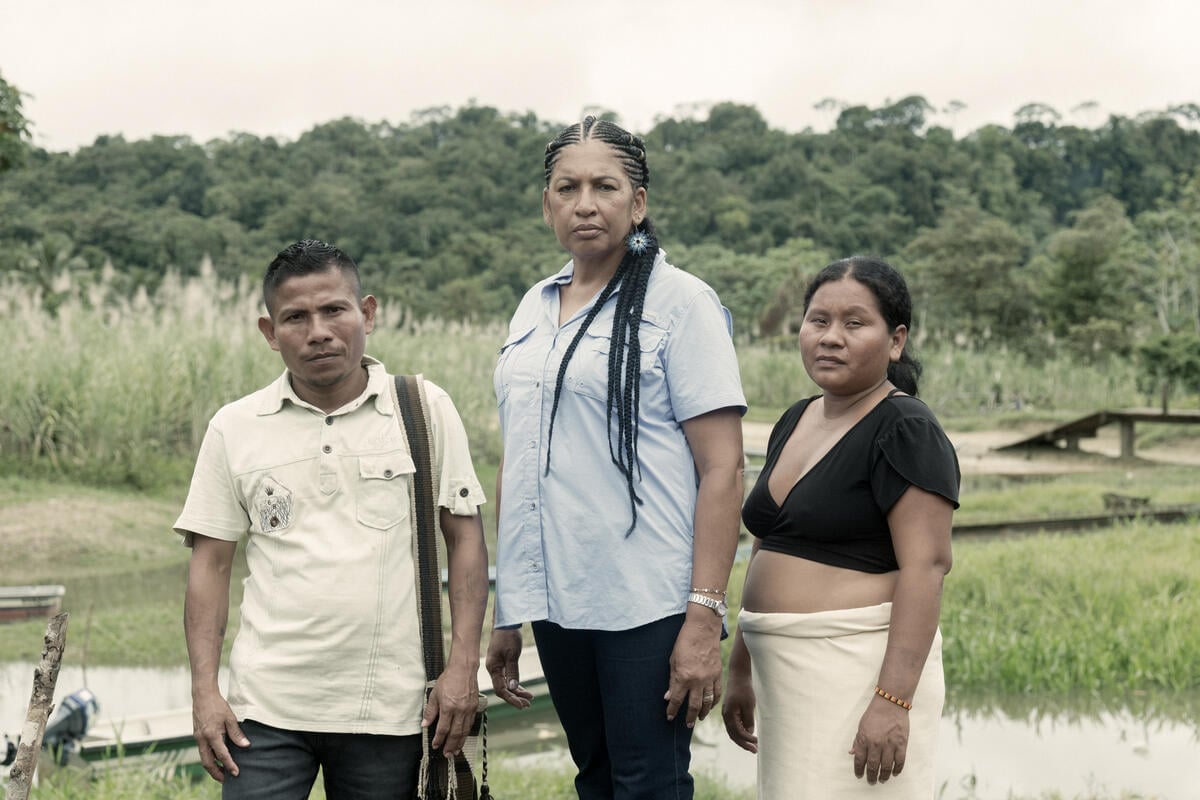Longing for Home: The bond between Afro-Colombians and their land
Longing for Home: The bond between Afro-Colombians and their land

BUENAVENTURA, Colombia, June 16 (UNHCR) - Mario Riascos has been forced to flee the Afro-Colombian community of La Gloria twice in the past two decades, but he keeps coming back, determined to remain in his home area. "This is my community, my roots," the 50-year-old says during a tour of the sleepy settlement, which is home to some 1,000 displaced people.
La Gloria lies in lush, humid countryside on the edge of the dilapidated and violent city of Buenaventura, Colombia's most important Pacific Ocean port and a vital conduit for imports and exports, including illegal shipments of drugs, precious metals, weapons and people.
It has also been a magnet for civilians fleeing violence and threats in the rural and riverine hinterland between Buenaventura and the foothills of the Andes. Last April, more than 800 people fled to the city to escape an increasingly violent struggle between armed groups to control mining and coca-growing activities.
"Official figures say there are around 73,000 IDPs [internally displaced people] in the city," explained a UNHCR protection officer. "There are also some communities at risk in the rural areas that decided to stay in [or near] their territories as a form of resistance," she added, referring to places like La Gloria.
For Afro-Colombians such as Riascos, land is all important and that's why many of those who are displaced keep returning when possible to collective ancestral territory that was recognized as theirs under 1993's landmark Law 70 (Setenta).
"Our land is our life," said Mario Angulo from Proceso de Comunidades Negras, an umbrella organization that fights for the rights of Afro-Colombians. "If we have to leave our land and our collective territory we will disappear as a group and end up living a western lifestyle in the city and losing our identity."
UNHCR understands this thinking and, as part of a focus on prevention, the refugee agency supports efforts to help rural communities to "avoid having to go out of their territories and losing the possibility of returning in a relatively short period of time," said Terry Morel, UNHCR's representative in Colombia.
"The further away you flee, the more likely you are to spend more time in displacement, which means more destruction of the social fabric of the community and more suffering generally," she added.
La Gloria was set up in 1967 by people coming from other parts of western Colombia, including Riascos and his parents, in search of economic opportunities. Since the mid-1990s, it has accepted families fleeing fighting between rival armed groups for control of their resource-rich inland homes.
But that violence has also affected La Gloria, which has resources such as timber, coal and gold, according to Riascos. The rich soil also supports agriculture and the community is run as a virtually self-sufficient cooperative.
The community leader has been forced to flee twice - in 1997 and again in 2001 - after spurning irregular armed groups operating in the area. "I refused to join them so they tried to kill me," he says, while adding that "displacement was like being stigmatized, so I did not want to be registered as displaced." Most people in such a situation do register.
Riascos, a father of five, went back to his place of origin in Cauca department to the south, returning when he thought it was safe. He escaped with a few scars, but others weren't so lucky; one of his friends was killed in front of his children.
For now the threat has ebbed and Riascos is preoccupied with other matters, including creeping urbanization and the related issue of preserving La Gloria, which is not recognized by the local authorities as a collective Afro-Colombian territory under the Setenta law. "We keep lobbying to be recognized. We say we are a rural zone, but they put us in the urban development plan," he explained.
Riascos fears that some people want to exploit the area and build plants on site to process La Gloria's natural resources. For now, he and his neighbours continue to welcome displaced families, offering new arrivals a quarter-of-a-hectare of land on which to build a simple house from timber and corrugated iron and cultivate fruit and vegetables for their own use.
There are also cooperative projects that benefit the whole community, including chicken-rearing and pig-raising. Riascos talks of aquaculture and horticulture plans. "We have enough to feed the community and sell to others," he notes.
La Gloria lacks running water (they use rainwater and a stream) and proper drainage and sewerage systems, but it does have electricity. The nearest health clinic is three kilometres away. But Riascos says they are ready to manage without most comforts because "here, we can keep our traditional practices, our identity and our culture even if we are displaced from our places of origin."
It is not an easy life, and medical problems such as malaria, skin infections and diaorrhea, are a problem. But at least they can call it home. 1 Person Longing for Home is too Many.
By Leo Dobbs in Buenaventura, Colombia









